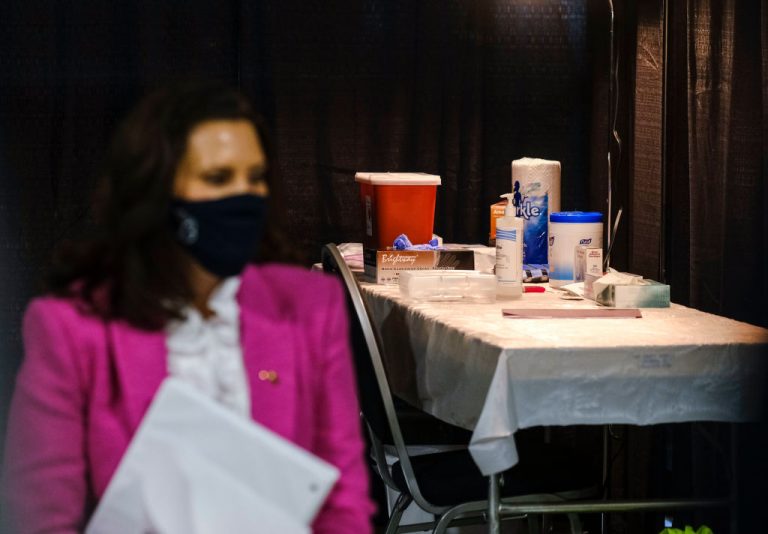Multi-million dollar vaccine acceptance lotteries launched by state governments in Idaho and Michigan to promote vaccine acceptance sputtered and failed to achieve their goals according to data.
June 30 reporting by Detroit Free Press chronicled the plans of Michigan Governor Gretchen Whitmer’s administration to give away $5 million in cash prizes to those over 18 and nine $55,000 college scholarships to those under 18 in a bid to boost her state’s vaccination rate.
All residents who had accepted at least one dose of a SARS-CoV-2 vaccine were eligible for the sweepstakes.
“The sweepstakes will involve a series of statewide drawings with an aim of encouraging more Michiganders to get a COVID-19 vaccine and raise the statewide immunization rate by roughly 9% — or nearly 768,000 Michiganders — to hit a statewide goal of 70% of residents age 16 and older who are immunized,” read the article.
The prizes were to be paid from Michigan’s federal coronavirus stimulus spending money.
Success
You are now signed up for our newsletter
Success
Check your email to complete sign up
The article noted vaccine uptake rates in the state had dropped by almost 90 percent from the beginning of April to the third week of June.
According to reporting by NBC25 on July 12, the lottery initiative fell so far short of its goal it could only be called an abject failure, “Health officials said they’re not seeing the bump vaccination rates [sic] they were hoping for when the lottery was first announced July 1, 2021. Instead of a major jump, the number of Michiganders with at least one shot increased less than 1%,” said author Andrew Feather.
Feather further described what was hoped to be opened “floodgates” for vaccine demand instead becoming a “a trickle that has been getting smaller by the day” after less than 37,000 people had taken an injection since the program began, falling 95 percent short of Whitmer’s target of 768,000.
Kalamazoo County Health Officer Jim Rutherford told the outlet not only is his department “not seeing our numbers skyrocket like we hoped,” but they are also “not seeing a terrible demand for the vaccine.”
“We’ve tried a lot of different approaches and I was hopeful that this lottery would increase that but just haven’t seen anything yet that would signify a significant increase.”
NBC also said that in addition to accepting a vaccine as a requirement for entry, the contest’s rules and regulations attached strings to winners that may make some uncomfortable with having their medical information made public, “One condition of winning is that organizations involved in the lottery, including Meijer, United Way and the Michigan government, can use the name, likeness, voice and biographical information for advertising and publicity purposes in perpetuity,” reads the article.
In Ohio, Governor Mike DeWine’s administration created a sweepstakes titled Vax-a-Million that involved a weekly $1 million prize from May 24 to June 21, giving away $5 million and five scholarships in all. DeWine’s initiative was pumped up by believers such as Andy Slavitt, former senior advisor for the White House’s COVID-19 Response Team, who told Detroit Free Press the lottery concept had “unlocked a secret.”
Slavitt claimed Ohio had seen a 55 percent increase in vaccine uptake in the 20 to 49 age bracket after the contest was announced.
A July 6 article by Center for Infectious Disease Research and Policy (CIDRAP) that summarized a July 2 Boston University research article published in JAMA on the efficacy of Ohio’s vaccine acceptance lottery came to different conclusions, however.
Researchers found in the period of April 15 to June 9, vaccine acceptance in Ohio fell from 485 per 100,000 residents to 101 compared to a fall from 700 per 100,000 residents to 97 in states that did not roll out promotional lotteries.
They also noted that after DeWine’s May 12 announcement touting the scheme, vaccine rates improved by 30 per 100,000 residents, which was on par with the national average of 27 per 100,000 residents over the same time period.
“The study did not find evidence that a lottery-based incentive in Ohio was associated with increased rates of adult COVID-19 vaccinations…In contrast, the analyses suggest that the rate of decline in vaccinations slowed to a greater extent in the US than in Ohio after the May 12 lottery announcement,” wrote the study’s authors.
CIDRAP pointed out Slavitt’s claim Ohio had seen an increase in vaccine uptake may have “coincided with the May 10 Food and Drug Administration expansion of the Pfizer/BioNTech vaccine’s emergency use authorization to children 12 to 15 years.”
This was important, Boston University’s team said, because “The slower decline in vaccination rates among adults in the US may suggest that expansion of vaccine eligibility to adolescents also was associated with an increase in adult vaccinations.”
“Further evidence supporting the effectiveness of lotteries as strategies for increasing vaccine uptake are needed prior to widespread and potentially costly adoption.”
As for what is effective, France saw more than 900,000 people book an appointment to accept a COVID-19 injection after President Emmanuel Macron announced France’s Health Pass vaccine passport would become mandatory for nearly every facet of public life next month.
















